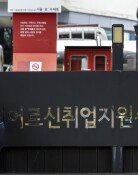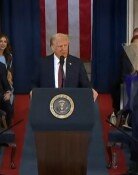S. Korea should show its commitment to U.S. as an ally
S. Korea should show its commitment to U.S. as an ally
Posted January. 09, 2020 07:49,
Updated January. 09, 2020 07:49
Iran fired roughly 10 missiles at two Iraqi bases housing U.S. troops on Wednesday in “bloody” retaliation for the American strike that killed a top Iranian general. Even though the impact of the strikes is reportedly being assessed, all-out war could break out if the United States decides to counterattack. U.S. President Donald Trump tweeted, “So far, so good! We have the most powerful and well equipped military anywhere in the world, by far!”
Iran’s attack came earlier than expected, probably because of the anti-U.S. sentiment in the country. However, it seems unlikely that there will be a war in the near future. Iran might have been swift in its retaliation but has described its strike as “proportionate,” meaning it will likely respond sporadically to U.S. attacks without waging an all-out war. President Trump has threatened to respond in a “disproportionate” manner, but initiating war requires a complicated process that involves the approval of the Congress and international solidarity. In addition, considering U.S. President Donald Trump’s reluctance to be involved, he will be cautious about taking action despite what he says.
As a U.S. alley, South Korea cannot “fiddle while Rome burns.” However, it cannot afford to throw itself in the midst of danger either. Iran is threatening to strike the U.S. mainland and warned that it will target U.S. allies that join the United States in retaliation for Teheran’s missile strikes. Importing 70 percent of oil from the Middle East, the South Korean economy will take a hit if Iran attacks oil facilities in the region or close the Strait of Hormuz.
The South Korean government has been reviewing sending forces to the Strait of Hormuz in the light of protecting ships and marine security and mulling over deploying the Cheonghae Anti-piracy Unit in the Gulf of Aden. Going forward, however, not only will the reasons for the deployment drastically change, but it will be more difficult to obtain approval from the National Assembly. This should not change the government’s stance in joining the U.S. military efforts in the Middle East. It should send a clear message to Washington that it is committed to making a contribution even though it is pondering the size, timing and method.
Sending troops to the Strait of Hormuz might help address issues Seoul has with Washington such as defense cost sharing. The Moon Jae-in administration has no reason to hesitate over joining the U.S.-led mission, especially because it is trying to encourage the United States to be more flexible in nuclear talks with North Korea which are currently stuck. A government that turns its back on its ally and loses trust cannot safeguard its people nor national interests.







